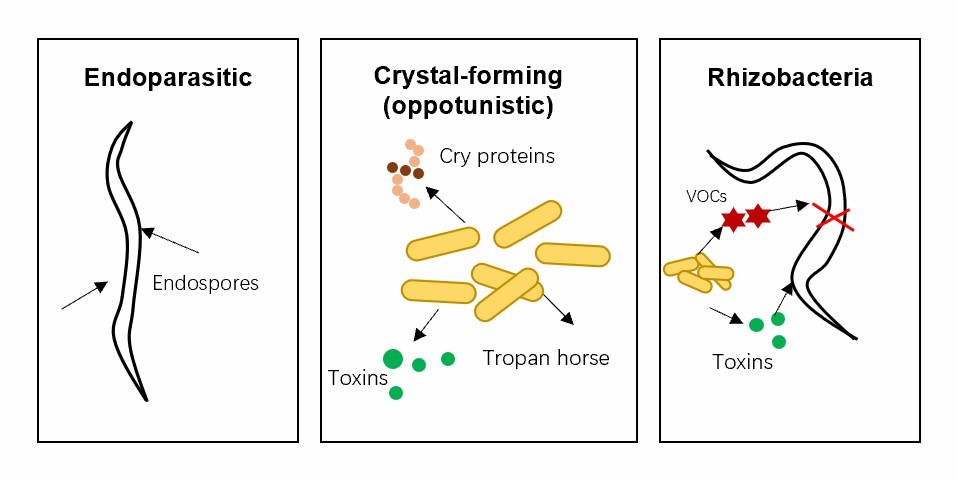Bacteria are microscopic, single-celled organisms that grow in various environments, ranging from spheres to rods and spirals, and inhabit soil, water, acidic hot springs, radioactive waste, and the deep biosphere of the earth's crust. They also live in a parasitic and symbiotic relationships with animals and many plants. Several commercial products have been made by bacteria to control the Phyto-nematodes. However, represents an important group of biological agents. They have many mechanisms of action for control or against the root-knot nematodes, antibiosis, direct parasitism, and competition for nutrition requirement.
Lifeasible provides analysis for bacteria control of plant nematodes to help our customers worldwide in plant science. Our experts will answer your questions comprehensively and carefully and help you solve the problems in your studies. We guarantee satisfied and reliable results for our customers all over the world.
 Fig.1 Illustrative representation of types and mechanisms of antagonism of bacteria on plant-parasitic nematodes.
Fig.1 Illustrative representation of types and mechanisms of antagonism of bacteria on plant-parasitic nematodes.
Lifeasible offers analysis services for bacteria control of plant nematodes with customized strategies and design. Our advanced technical platforms help our clients solve the problems they may encounter in research based on decades of experience. If you are interested in our services or have any questions, please feel free to contact us or make an online inquiry.
Lifeasible has established a one-stop service platform for plants. In addition to obtaining customized solutions for plant genetic engineering, customers can also conduct follow-up analysis and research on plants through our analysis platform. The analytical services we provide include but are not limited to the following:
STU-CRISPR System Improves Plant Genome Editing Efficiency
April 19, 2024
Application of Exosomes in Facial Beauty
April 12, 2024